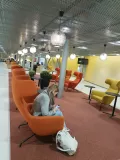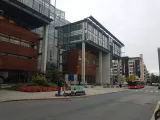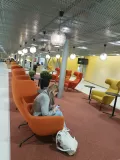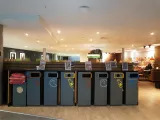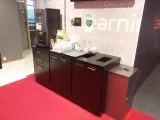Published: 14.04.2021
Between 2019 and 2020, the Department of Economy and Management of Chemical and Food Industry, Faculty of Chemical Technology (FChT) carried out a beneficial and interesting project with a Norwegian partner institution BI Norwegian Business School entitled Innovation of Education Methods and Skills at the University of Pardubice – INEMSUP.
The aim of the project was to support education in social responsibility, exchange experience and promote further cooperation in this area as well as other areas. Despite the COVID-19 pandemic, the project has been fully completed and has resulted in a number of benefits, one of them being particularly important and deserving publicity—the approach of the Norwegian partner institution to responsibility.
While many Czech companies and institutions including universities recognize the need for a responsible approach to the environment and society, real action is often limited, theoretical or merely proclaimed. However, Norway’s attitude is completely different. The BI institution has really implemented responsibility and sustainability into everyday life!
“To teach responsibility, we must start with ourselves”
Prof. Atle Midttun
The statement of the project co-investigator Prof. Atle Midttun is by no means an empty cliché or a mere advertising motto.
BI Norwegian Business School has adhered to “The Principles for Responsible Management Education (PRME)” and “UN Sustainable Development Goals (SDG)”. The campuses and operations are certified by Eco-lighthouse as sustainable. The institution has also published its own Sustainability Strategy until 2025.
But this is not just about documents, goals, indicators or communication. Equally convincing is the overall picture that we gained during our stay at BI Norwegian Business School. Sustainability and responsibility are visible literally at every step. The photographs from our visit to Norway say more than words.
Below are some interesting examples of practical applications: the academics’ airline tickets included a compensation fee for CO2 released during air traffic, cooperation was established only with responsible corporations and, last but not least, environmental thinking was underlined by keeping bees on the roof of the building.
However, a fundamental change has taken place in the minds of all the participants, which is impossible to capture on photographs. The change is an obvious embedment of these principles in everyday life, acceptance of their naturalness and understanding that this is a natural approach, not just for the institution itself but for the whole society.
Our trips to Norway make us believe that this way makes sense. Let us hope that things will go in the same direction in our country. Our experience has been reflected in the courses taught at FChT. Now it is time that we focus on our thinking and behaviour.
Ing. Jan Vávra, Ph.D.
Head of Department of Economy and
Management of Chemical and Food Industry
